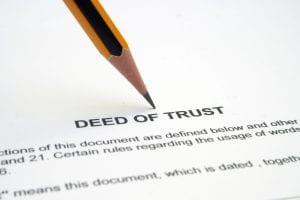By Maria Hinerman
Jun 10, 2015 When you are ready to purchase your new home or refinance your current one, you will be given a series of documents you need to sign at settlement. Understanding what you are signing is important and it will help ensure that you are making the correct decision. Three important documents to review and understand are the Deed, the Note, and the Deed of Trust.
When you are ready to purchase your new home or refinance your current one, you will be given a series of documents you need to sign at settlement. Understanding what you are signing is important and it will help ensure that you are making the correct decision. Three important documents to review and understand are the Deed, the Note, and the Deed of Trust.
The Deed
The Deed is a legal document which gives rights to something. In real estate, a Deed transfers title of ownership and gives the new owner the rights to use the property. Click here to find out more about Deeds and the different types there are.
The Note
The Note (or Promissory Note) is a contract where a party makes a promise to pay a sum of money to another party under specific terms. In real estate, the Note is the legal document that binds the borrower to repay a mortgage loan. This agreement will contain important loan specification, such as the loan amount, interest rate, due dates, late charges, and the terms of the mortgage.
The Deed of Trust
The Deed of Trust (or Mortgage or Security Instrument) is a legal document that grants the lender the rights to take the property if the borrower goes into default and does not pay under the terms of the Note. The lender holds title to the property until the borrower has repaid the debt in full.
The Differences
- The Note is signed by the people who agree to pay the debt (the people that will be making the mortgage payments). The Deed and the Deed of Trust are signed by those who will own the property that is being mortgaged. Typically in a residential settlement, the signers of the Note and the Deed of Trust are the same, but this is not always the case.
- The Note itself has virtually nothing to do with the property. If the borrower does not pay the agreed amount, the lender can sue “under the Note” and obtain remedies for breaching the contract. The Deed of Trust is the document that grants the lender the rights to take the property if the loan is not repaid.
- The Deed and the Deed of Trust need to be recorded in the recording office of the property’s county or town, while the Note is returned to the lender.
To learn more mortgage terms, please visit our Mortgage Terms Glossary page.
If you are ready to purchase a home or refinance your own, contact one of our licensed Mortgage Loan Originators today to get started!
These blogs are for informational purposes only. Make sure you understand the features associated with the loan program you choose, and that it meets your unique financial needs. Subject to Debt-to-Income and Underwriting requirements. This is not a credit decision or a commitment to lend. Eligibility is subject to completion of an application and verification of home ownership, occupancy, title, income, employment, credit, home value, collateral, and underwriting requirements. Not all programs are available in all areas. Offers may vary and are subject to change at any time without notice. Should you have any questions about the information provided, please contact us.